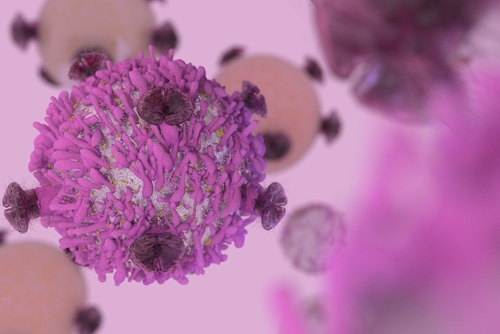Despite advances made in cancer treatment, in particular the development of effective immunotherapies, many solid tumors are still resistant. The reason for that may be a protein called IFNAR1, which was found essential for the anti-tumor immune response and, thus, critical for the success of immunotherapies.
This findings were reported in the study “Inactivation of Interferon Receptor Promotes the Establishment of Immune Privileged Tumor Microenvironment,” and published at Cancer Cell. The research was conducted by a team at the University of Pennsylvania and led by Serge Y. Fuchs, MD, PhD, a professor of cell biology in Penn’s School of Veterinary Medicine, and director of the school’s Mari Lowe Center for Comparative Oncology.
For some time Fuchs’ laboratory has been studying IFNAR1, known to be an important player against cancer, regulating the inflammatory and immune response.
In normal conditions IFNAR1 is found at the surface of cells, and decreases upon activation by interferon. This process avoids overload of signals to the cell, working as a protective mechanism.
In a prior study, Fuchs and colleagues showed that besides this normal process, IFNAR1 expression also can be down-regulated by another competing pathway. This secondary process damages the cells, making them unable to activate IFNAR1.
“And when we found that some of the stimuli that can remove IFNAR1 from the cell surface are similar to those that occur in the tumor microenvironment, we became curious if the loss of the receptor happens in the tumors,” Fuchs said in a press release.
Because of the fast-growing rate of most solid cancers, they often exhibit lack of oxygen and nutrients. This stressful tumor microenvironment is accompanied by a decrease in expression of immune-related genes, blocking the detection of the cancer cells by the immune system, referred to as an immune-privileged niche.
In the most recent study, by examining tissue samples of patients with colorectal cancer, the researchers found that tumor cells showed complete or near-complete loss of IFNAR1 compared to normal cells. This loss also was found to be associated with poorer outcomes.
Further studies with animal models for colorectal cancer showed that those who expressed a non-degradable form of IFNAR1 had fewer tumors. Additionally, when the team transplanted tumor cells into those animals, they rejected the cells or showed a delayed tumor growth.
The research team also showed that the expression of IFNAR1 within the tumor was necessary for the immune cells to effectively migrate into the tumor microenvironment and survive there. This ability is essential to increase the number of immune cells inside the tumor, improving their action as anti-tumorigenic agents.
“We found that this down-regulation of the receptor is required for the generation of immune-privileged niches in the tumor microenvironment,” Fuchs said. “Accordingly, this decreases the efficacy of immune therapies. So, if we can reverse that, then we’ll probably improve the outcome of treatment.”
These findings may help explain why immunotherapies based on genetically engineered- immune cells can have low effectiveness in solid cancers.
“Based on that we were able to make a better immunotherapy,” said Fuchs, who now is working to develop a drug that stabilizes the receptor. “Technically, it’s not very simple, but it should be feasible.”
The team also is trying to develop a CAR T-cell therapy that incorporates a stabilized receptor.


